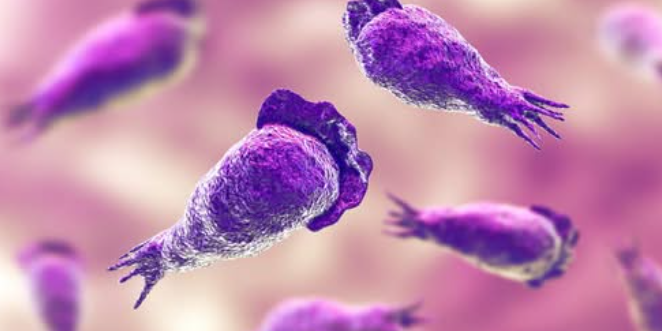Health officials in South Carolina have confirmed a rare but deadly case of infection caused by Naegleria fowleri, commonly known as the brain-eating amoeba. The South Carolina Department of Public Health (SCDPH) announced the case earlier this month, raising public concern about water safety during the peak summer season.
Bernice LaRochelle Obituary: Norwich Man Arrested After Fatal Accident in Griswold
What Is Naegleria Fowleri?
Naegleria fowleri is a microscopic, single-celled organism found in warm freshwater environments such as lakes, rivers, and hot springs. It causes Primary Amoebic Meningoencephalitis (PAM), a severe brain infection that is almost always fatal.
Infection typically occurs when contaminated water enters the body through the nose, allowing the amoeba to travel to the brain. Activities such as swimming or using untreated tap water in nasal rinsing devices are the most common sources of exposure.
Details of the Confirmed Case
The case was identified during the week of July 7, 2025, though the SCDPH has not disclosed the exact location or identity of the infected individual. The department also clarified that it does not track individual cases of Naegleria fowleri, citing privacy and public health policies.
While local rumors suggest the possible death of a child due to the infection, no official confirmation has been issued by the Centers for Disease Control and Prevention (CDC), hospitals, or medical examiners.
Who Is at Risk?
Although extremely rare, the infection is highly dangerous, with a fatality rate of over 97%. Fewer than 10 cases are reported in the U.S. annually. Risk factors include:
- Swimming in warm freshwater during summer
- Using untreated or non-sterile water for nasal irrigation (e.g., neti pots)
- Poor water hygiene in recreational water systems
Recent History and Background
Naegleria fowleri infections are more common in southern U.S. states like Texas, Florida, and Louisiana due to warmer climates. In June 2024, a woman in Texas died after using contaminated water from an RV for nasal irrigation. Her infection was traced to the same brain-eating amoeba.
The CDC has been tracking this rare amoeba for decades and confirms that most infections occur during the summer when water temperatures rise and conditions are favorable for amoeba growth.
Public Response and Safety Concerns
The confirmed case has sparked concern on social media, with many users expressing fear over recreational water safety and calling for increased testing and water monitoring. Some are also sharing safety tips and urging others to use boiled or sterile water when performing any nasal hygiene practices.
Local health departments are using the case to re-emphasize summer water safety guidelines, particularly around lakes, rivers, and splash parks.
CDC Safety Guidelines to Prevent Infection
The CDC recommends the following to reduce the risk of Naegleria fowleri infection:
- Avoid getting water up your nose when swimming in warm freshwater.
- Hold your nose shut or use nose clips when diving or jumping into lakes and rivers.
- Never use tap water for nasal irrigation unless it has been boiled, filtered, or sterilized.
- Avoid disturbing sediment in shallow, warm freshwater areas.
What Happens Next?
As of now, no further details have been released. Health officials are encouraging residents to stay informed and follow safety precautions when enjoying freshwater activities this summer. The SCDPH and CDC will continue monitoring the situation and may issue updates as more information becomes available.
Conclusion
While the risk of infection remains extremely low, the case in South Carolina serves as a critical reminder to take precautions around warm freshwater and ensure proper water hygiene when using it for medical or recreational purposes.
For guidance or concerns about possible exposure to Naegleria fowleri, contact your local health department immediately.

